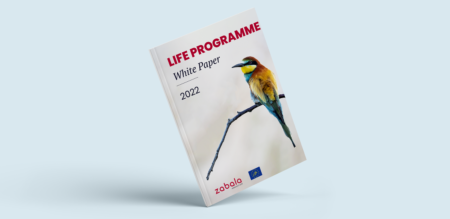This website uses cookies so that we can provide you with the best user experience possible. Cookie information is stored in your browser and performs functions such as recognising you when you return to our website and helping our team to understand which sections of the website you find most interesting and useful.
Next Generation EU: new European 750 billion euro recovery fund
The European Commission has proposed a €750 billion recovery fund which includes a grant facility of up to € 310 billion and € 250 billion in loans.

The European Commission has presented a new recovery fund called “Next Generation EU”. With a budget of 750 billion euros to tackle the economic crisis caused by the coronavirus pandemic, this instrument will be financed with an unprecedented debt issue. Italy and Spain will be the main beneficiaries, as those are two of the countries hit hardest by the Covid-19.
The recovery fund aims to ensure a sustainable, equitable, inclusive and fair recovery for all Member States, according to information released by the EU executive. This aid package will be linked to the Multiannual Financial Framework for the period 2021-2027, and will raise the total financial capacity of the Union’s budget to 1.85 billion euros.
Spain and Italy as top beneficiaries
The plan will lead to the European community getting into substantial debt in the financial markets for the first time in 60 years. Moreover, a part of these resources will be transferred in the form of non-refundable subsidies for the first time in the EU’s history,
The subsidies will be allocated per country which could provide to Spain around 77 billion euros and Italy with 80 billion euros respectivly. The loans would be without interest but with safeguards to ensure that they reach the countries most in need. In this case Spain and Italy could receive around 63 billion and 90 billion euros respectively.
#NextGenerationEU
Next Generation EU will raise money by temporarily lifting the own resources ceiling to 2.00% of EU Gross National Income, allowing the Commission to use its strong credit rating to borrow €750 billion on the financial markets. This additional funding will be channelled through EU programmes and repaid over a long period of time throughout future EU budgets – not before 2028 and not after 2058. To help do this in a fair and shared way, the Commission proposes a number of new own resources. In addition, in order to make funds available as soon as possible to respond to the most pressing needs, the Commission proposes to amend the current multiannual financial framework 2014-2020 to make an additional €11.5 billion in funding available already in 2020.
Three pillars
The money raised for Next Generation EU will be invested across three pillars:
1. Support to Member States with investments and reforms:
- A new Recovery and Resilience Facility of €560 billion will offer financial support for investments and reforms, including in relation to the green and digital transitions and the resilience of national economies, linking these to the EU priorities. This facility will be embedded in the European Semester. It will be equipped with a grant facility of up to €310 billion and will be able to make up to €250 billion available in loans. Support will be available to all Member States but concentrated on the most affected and where resilience needs are the greatest.
- A €55 billion top-up of the current cohesion policy programmes between now and 2022 under the new REACT-EU initiative to be allocated based on the severity of the socio-economic impacts of the crisis, including the level of youth unemployment and the relative prosperity of Member States.
- A proposal to strengthen the Just Transition Fund up to €40 billion, to assist Member States in accelerating the transition towards climate neutrality.
- A €15 billion reinforcement for the European Agricultural Fund for Rural Development to support rural areas in making the structural changes necessary in line with the European Green Deal and achieving the ambitious targets in line with the new biodiversity and Farm to Fork strategies.
2. Kick-starting the EU economy by incentivising private investments:
- A new Solvency Support Instrument will mobilise private resources to urgently support viable European companies in the sectors, regions and countries most affected. It can be operational from 2020 and will have a budget of €31 billion, aiming to unlock €300 billion in solvency support for companies from all economic sectors and prepare them for a cleaner, digital and resilient future.
- Upgrade InvestEU, Europe’s flagship investment programme, to a level of €15.3 billion to mobilise private investment in projects across the Union.
- A new Strategic Investment Facility built into InvestEU– to generate investments of up to €150 billion in boosting the resilience of strategic sectors, notably those linked to the green and digital transition, and key-value chains in the internal market, thanks to a contribution of €15 billion from Next Generation EU.
3. Addressing the lessons of the crisis:
- A new Health Programme, EU4Health, to strengthen health security and prepare for future health crises with a budget of €9.4 billion.
- A €2 billion reinforcement of rescEU, the Union’s Civil Protection Mechanism, which will be expanded and strengthened to equip the Union to prepare for and respond to future crises.
- An amount of EUR€94.4 billion for Horizon Europe, which will be reinforced to fund vital research in health, resilience and the green and digital transitions.
- Supporting Europe’s global partners through an additional €16.5 billion for external action, including humanitarian aid.
- Other EU programmes will be strengthened to align the future financial framework fully with recovery needs and strategic priorities. Other instruments will be reinforced to make the EU budget more flexible and responsive.
Source: ec.europe.eu
Read about a previous article on France and Germany recovery fund proposal for €500B.



